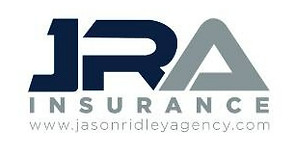What Drivers in DFW Need to Know About Auto Insurance
- Brian Hall
- Sep 29, 2025
- 4 min read
Auto insurance is a crucial part of responsible vehicle ownership, especially in a busy and sprawling metro area like Dallas-Fort Worth (DFW). Understanding the basics, local requirements, and how to get the best coverage can save you money and stress. This guide will walk you through everything you need to know about auto insurance in the DFW area, from legal requirements to cost factors and tips for finding the right policy.
Understanding Auto Insurance Requirements in DFW
Texas law mandates that all drivers carry a minimum amount of auto insurance to legally operate a vehicle. The state requires liability coverage, which pays for damages or injuries you cause to others in an accident. The minimum liability limits in Texas are:
$30,000 for bodily injury per person
$60,000 for total bodily injury per accident
$25,000 for property damage
These minimums are often referred to as 30/60/25 coverage. While this is the legal minimum, many drivers opt for higher limits to better protect themselves financially.
Why Liability Coverage Matters
Liability insurance covers costs if you are at fault in an accident. This includes medical bills, repair costs, and legal fees if the other party sues. Without adequate coverage, you could be personally responsible for these expenses, which can be financially devastating.
Additional Coverage Options
Besides liability, you can add other types of coverage to your policy:
Collision coverage: Pays for damage to your car from a collision, regardless of fault.
Comprehensive coverage: Covers non-collision damage like theft, vandalism, or natural disasters.
Uninsured/underinsured motorist coverage: Protects you if the other driver lacks sufficient insurance.
Medical payments coverage: Helps pay your medical bills after an accident.
Choosing the right combination depends on your vehicle’s value, your budget, and your risk tolerance.

How to Choose the Best Auto Insurance in DFW
Finding the right auto insurance in DFW means balancing cost, coverage, and customer service. Here are some practical tips to help you make an informed decision:
Shop Around and Compare Quotes
Insurance rates can vary widely between companies. That's why it's often best to work with a local independent agent like The Jason Ridley Agency. We can get quotes from multiple insurers to compare prices and coverage options, saving you the time and hassle.
Consider Your Driving Habits
If you mostly drive within the city or have a short commute, you might qualify for lower rates. Conversely, long-distance commuters or those who drive frequently may need more comprehensive coverage.
Check for Discounts
Many insurers offer discounts that can reduce your premium, such as:
Safe driver discounts
Multi-policy discounts (bundling auto with home insurance)
Good student discounts
Low mileage discounts
Ask your agent about all available discounts.
Review the Insurer’s Reputation
Look for companies with strong financial stability and good customer service reviews. You want an insurer that will be responsive and fair when you file a claim.
For drivers in the area, exploring options for auto insurance dfw can connect you with local expertise and tailored policies.

What's Expensive for Car Insurance?
Many drivers wonder what amount for car insurance is reasonable. The answer depends on several factors:
Factors Influencing Your Premium
Age and driving experience: Younger or less experienced drivers usually pay more.
Driving record: Accidents or tickets increase rates.
Vehicle type and # of vehicles: The higher the number of vehicles on the policy, and expensive or high-performance cars cost more to insure.
Coverage levels: Higher limits and more coverage types raise premiums.
Location: Urban areas with more traffic and theft risk as well as more affluent areas where vehicles may cost more to repair, tend to have higher rates.
Average Costs in DFW
In the Dallas-Fort Worth area, the average monthly premium for full coverage can range from $100 to $300 depending on the above factors. So, $200 a month is within the typical range for the average driver, especially those with newer cars or higher coverage limits.
How to Lower Your Premium
Strategies to minimize your overall cost:
Increase your deductible (the amount you pay out of pocket before insurance kicks in).
Maintain a clean driving record.
Take a defensive driving course.
Bundle your auto insurance with other policies.
Review your coverage annually to adjust as needed.

Common Mistakes to Avoid When Buying Auto Insurance
Many drivers make errors that cost them money or leave them underinsured. Avoid these pitfalls:
Choosing the minimum coverage only: This can leave you exposed to large out-of-pocket costs.
Not updating your policy: Life changes like moving, buying a new car, or adding a driver should be reflected in your policy.
Ignoring discounts: Failing to ask about discounts means missing out on savings.
Assuming all insurers are the same: Price isn’t everything; service and claims handling matter.
Not reading the fine print: Understand what is and isn’t covered to avoid surprises.
Being proactive and informed helps you get the best value and protection.
Tips for Filing a Claim in DFW
If you get into an accident, knowing how to file a claim smoothly can reduce stress:
Ensure safety first: Move to a safe location and check for injuries.
Gather information: Exchange contact and insurance details with the other driver.
Document the scene: Take photos of damage, license plates, and the accident location.
Report to your insurer promptly: Contact your insurance company as soon as possible. Carrier contacts can be found here: https://www.jasonridleyagency.com/contact-your-carrier.
Keep records: Save all documents, receipts, and correspondence related to the claim.
Prompt and organized action helps your claim process go faster and more smoothly.
Understanding auto insurance in the DFW area empowers you to make smart choices that protect your finances and peace of mind. Whether you are a new driver or looking to update your policy, knowing the requirements, costs, and best practices will help you navigate the insurance landscape confidently. For personalized assistance, consider reaching out to local experts who can tailor coverage to your needs.




Comments